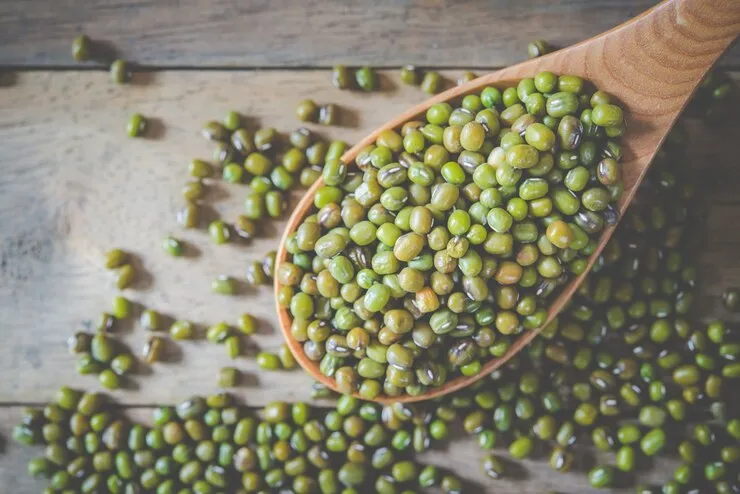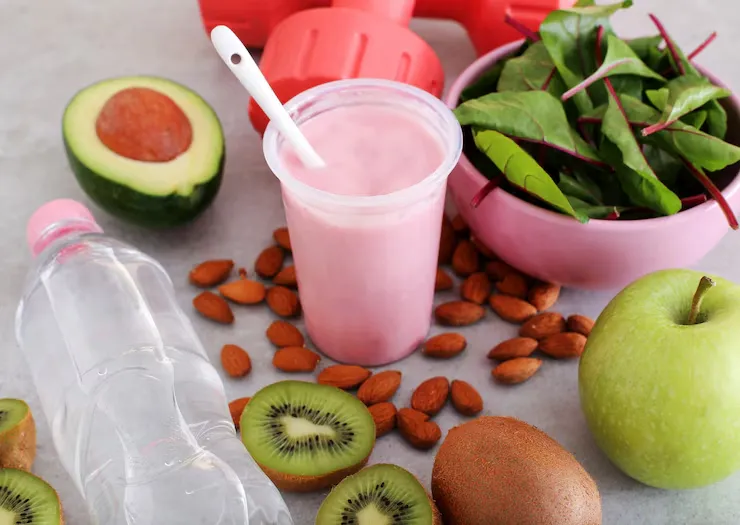7 Healthy Milk Substitutes: Your Guide to Dairy-Free Living
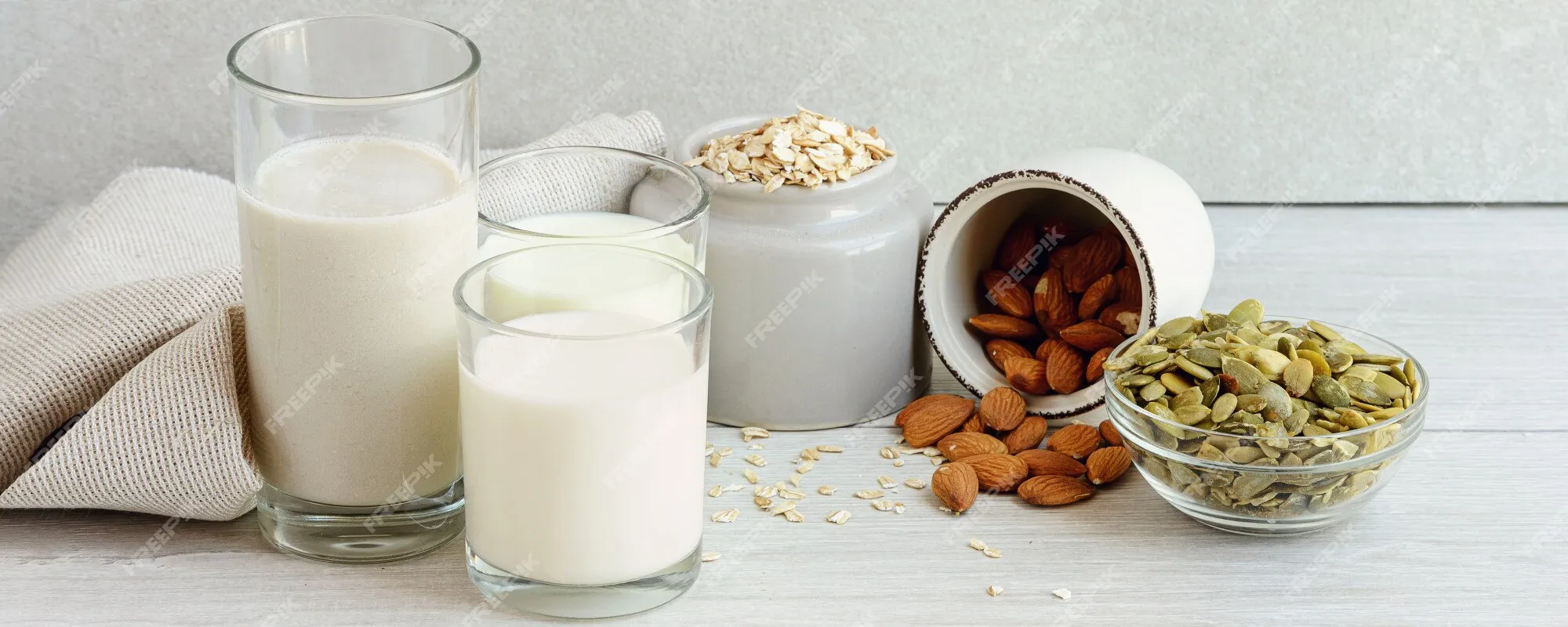
- The Rise of Dairy-Free Alternatives
- Why Consider Milk Substitutes?
- 1. Soy Milk
- 2. Almond Milk
- 3. Oat Milk
- 4. Coconut Milk
- 5. Rice Milk
- 6. Hemp Milk
- 7. Pea Milk
- How to Choose the Right Milk Substitute for You
- Making the Switch: Tips for Success
- The Future of Milk: What's Next?
- Embracing a Dairy-Free Lifestyle
- Frequently Asked Questions
Are you looking to make the switch to a dairy-free lifestyle? Whether it’s due to lactose intolerance, ethical concerns, or simply a desire to explore new flavors, you’re in the right place. Today, we’re diving into the world of healthy milk substitutes that not only taste great but also pack a nutritional punch.
The Rise of Dairy-Free Alternatives
Gone are the days when milk meant just one thing. The market for healthy milk substitutes has exploded in recent years, offering a plethora of options for the dairy-averse and the dairy-curious alike.
From creamy plant-based beverages to nutrient-rich nut milks, there’s something for everyone. These alternatives aren’t just for those with dietary restrictions; they’re for anyone looking to diversify their diet and explore new flavors.
Why Consider Milk Substitutes?
Before we jump into our list of healthy milk substitutes, let’s talk about why you might want to consider them. For many, it’s about health. Lactose intolerance affects a significant portion of the global population, particularly in Asian countries.
But it’s not just about digestion. Some people choose dairy-free options for ethical reasons, environmental concerns, or simply to reduce their intake of saturated fats. Whatever your motivation, there’s a milk substitute out there for you.
1. Soy Milk
Let’s start with a classic. Soy milk has been around for centuries and remains one of the most popular healthy milk substitutes. It’s not hard to see why.
Soy milk is packed with protein, making it a great option for those looking to maintain muscle mass or feel fuller for longer. It also contains isoflavones, which may help reduce the risk of heart disease and some types of cancer.
When it comes to taste and texture, soy milk is one of the closest to cow’s milk. It’s creamy, slightly sweet, and works well in both sweet and savory dishes. From your morning coffee to your favorite baked goods, soy milk can do it all.
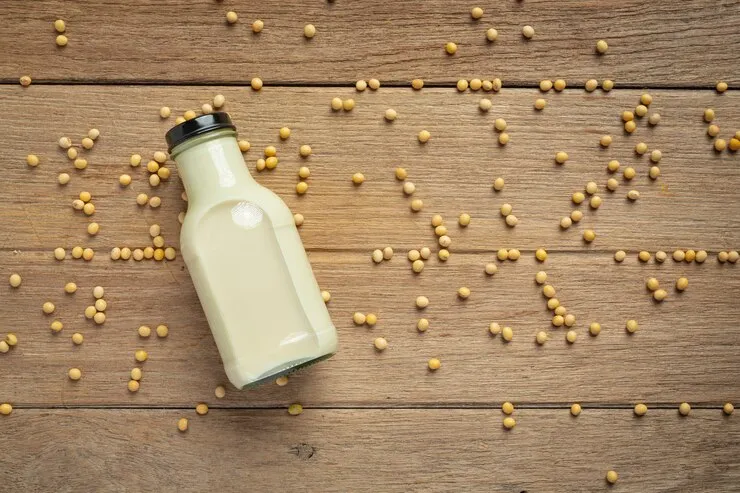
2. Almond Milk
If you’re looking for something a bit lighter, almond milk might be your new best friend. This healthy milk substitute is low in calories but high in vitamin E, which is great for your skin and immune system.
Almond milk has a slightly nutty flavor that works wonderfully in smoothies and breakfast cereals. It’s also a popular choice for those watching their calorie intake, as unsweetened varieties can have as few as 30 calories per cup.
One thing to note: almond milk isn’t as high in protein as some other alternatives. If you’re relying on it as a major protein source, you might want to consider supplementing with other protein-rich foods.
3. Oat Milk
In recent years, oat milk has taken the world by storm, and for good reason. This healthy milk substitute is creamy, slightly sweet, and incredibly versatile.
Oat milk is a great source of fiber, particularly beta-glucan, which can help lower cholesterol levels. It’s also naturally sweet, making it a favorite for coffee shops and latte lovers everywhere.
One of the best things about oat milk is its environmental footprint. Oats require less water to grow than nuts, making oat milk a more sustainable choice in many regions.
4. Coconut Milk
If you’re a fan of rich, creamy textures, coconut milk might be your new favorite healthy milk substitute. While it’s higher in fat than some other options, it’s rich in medium-chain triglycerides (MCTs), which may boost brain function and help with weight management.
Coconut milk adds a tropical twist to smoothies and works wonderfully in curries and other savory dishes. It’s also a great option for those following a ketogenic diet due to its high fat content.
Just remember, a little goes a long way. Coconut milk is calorie-dense, so you might want to use it more as a treat than an everyday staple.
Read This! 5 Cocoa Powder Business Tricks with Affordable Capital
5. Rice Milk
For those with multiple allergies, rice milk can be a lifesaver. It’s naturally free from soy, nuts, and gluten, making it one of the least allergenic healthy milk substitutes out there.
Rice milk is light and slightly sweet, with a thin consistency similar to skim milk. It’s a good source of B vitamins and can be fortified with calcium and vitamin D to match the nutritional profile of cow’s milk.
While rice milk is easy to digest, it’s important to note that it’s higher in carbohydrates and lower in protein compared to other alternatives. If you’re watching your blood sugar or need more protein in your diet, you might want to consider other options.
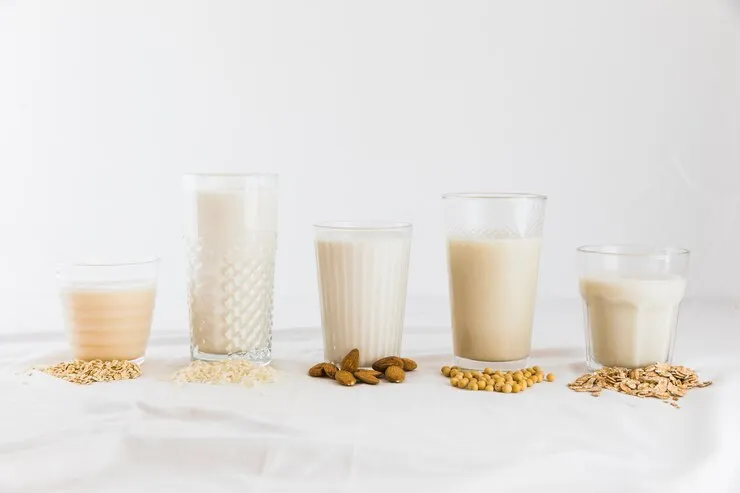
6. Hemp Milk
Hemp milk might not be as well-known as some other healthy milk substitutes, but it’s definitely worth considering. Made from the seeds of the hemp plant, this milk is rich in omega-3 fatty acids, which are crucial for heart and brain health.
Don’t worry – hemp milk won’t get you high. The hemp used for milk production contains only trace amounts of THC, the psychoactive compound found in marijuana.
Hemp milk has a nutty, slightly grassy flavor that some people love and others need to acquire a taste for. It’s particularly good in savory dishes and makes a great base for sauces.
7. Pea Milk
Last but certainly not least, we have pea milk. This newcomer to the world of healthy milk substitutes is making waves for its high protein content and creamy texture.
Made from yellow peas, this milk offers as much protein as cow’s milk without the lactose or allergens. It’s also environmentally friendly, requiring less water to produce than almond milk.
Pea milk has a mild, slightly sweet flavor that works well in most applications. It’s particularly good for those looking to increase their protein intake without relying on animal products.
How to Choose the Right Milk Substitute for You
With so many healthy milk substitutes available, how do you choose the right one? Here are a few factors to consider:
- Nutritional needs: Are you looking for high protein, low fat, or specific vitamins and minerals?
- Taste preferences: Do you prefer sweet, nutty, or neutral flavors?
- Intended use: Will you be drinking it straight, using it in coffee, or cooking with it?
- Allergies and sensitivities: Make sure to choose an option that’s safe for you to consume.
- Environmental impact: If sustainability is important to you, consider the water usage and carbon footprint of different options.
Remember, there’s no one-size-fits-all solution. You might find that you prefer different milk substitutes for different purposes. Don’t be afraid to experiment and find what works best for you.
Making the Switch: Tips for Success
Transitioning to healthy milk substitutes can be an adjustment, especially if you’ve been a lifelong dairy drinker. Here are some tips to make the switch smoother:
- Start gradually: Try replacing dairy milk in one application at a time, like your morning coffee or breakfast cereal.
- Experiment with brands: Not all milk substitutes are created equal. Try different brands to find the ones you like best.
- Read labels: Look for unsweetened varieties to avoid added sugars, and check for fortification with calcium and vitamin D.
- Be patient: It can take time for your taste buds to adjust. Give yourself a few weeks before deciding if a particular substitute is right for you.
- Mix it up: Don’t feel like you have to stick to just one type of milk substitute. Having a variety can keep things interesting and ensure you’re getting a range of nutrients.
The Future of Milk: What’s Next?
The world of healthy milk substitutes is constantly evolving. As more people seek out dairy-free options, we’re likely to see even more innovative products hit the market.
Some emerging trends include milk made from novel ingredients like barley or flax seeds, as well as blends that combine multiple plant sources for optimal nutrition and flavor.
We’re also seeing advances in production methods that aim to make plant-based milks even more sustainable and nutritionally comparable to cow’s milk.
Embracing a Dairy-Free Lifestyle
Switching to healthy milk substitutes doesn’t mean sacrificing taste or nutrition. With the wide variety of options available today, you can enjoy all your favorite foods and beverages while adhering to a dairy-free lifestyle.
Whether you’re lactose intolerant, vegan, or simply curious about expanding your dietary horizons, there’s a milk substitute out there for you. By choosing plant-based alternatives, you’re not only taking care of your health but also making a positive impact on the environment.
So why not give these healthy milk substitutes a try? Your taste buds – and your body – might just thank you.
Frequently Asked Questions
- Are milk substitutes as nutritious as cow’s milk?
Many milk substitutes are fortified to match the nutritional profile of cow’s milk. However, the natural nutrient content can vary. It’s important to read labels and choose fortified options if you’re relying on them as a primary source of calcium and vitamin D. - Can I use milk substitutes in baking?
Absolutely! Many milk substitutes work well in baking, though you may need to adjust recipes slightly. Soy and oat milk are often good choices for baking due to their protein content and neutral flavor. - Are all milk substitutes suitable for people with nut allergies?
No, not all milk substitutes are safe for those with nut allergies. Almond milk and other nut-based milks should be avoided. However, options like soy milk, oat milk, and rice milk are generally safe for those with nut allergies. Always check labels to be sure. - How long do milk substitutes last after opening?
This can vary by brand and type, but most plant-based milks last 7-10 days in the refrigerator after opening. Always check the packaging for specific storage instructions. - Can babies and young children drink milk substitutes?
While milk substitutes can be part of a healthy diet for older children and adults, they’re not suitable as a complete replacement for breast milk or formula for babies under 12 months. For older children, consult with a pediatrician to ensure they’re getting all necessary nutrients.

